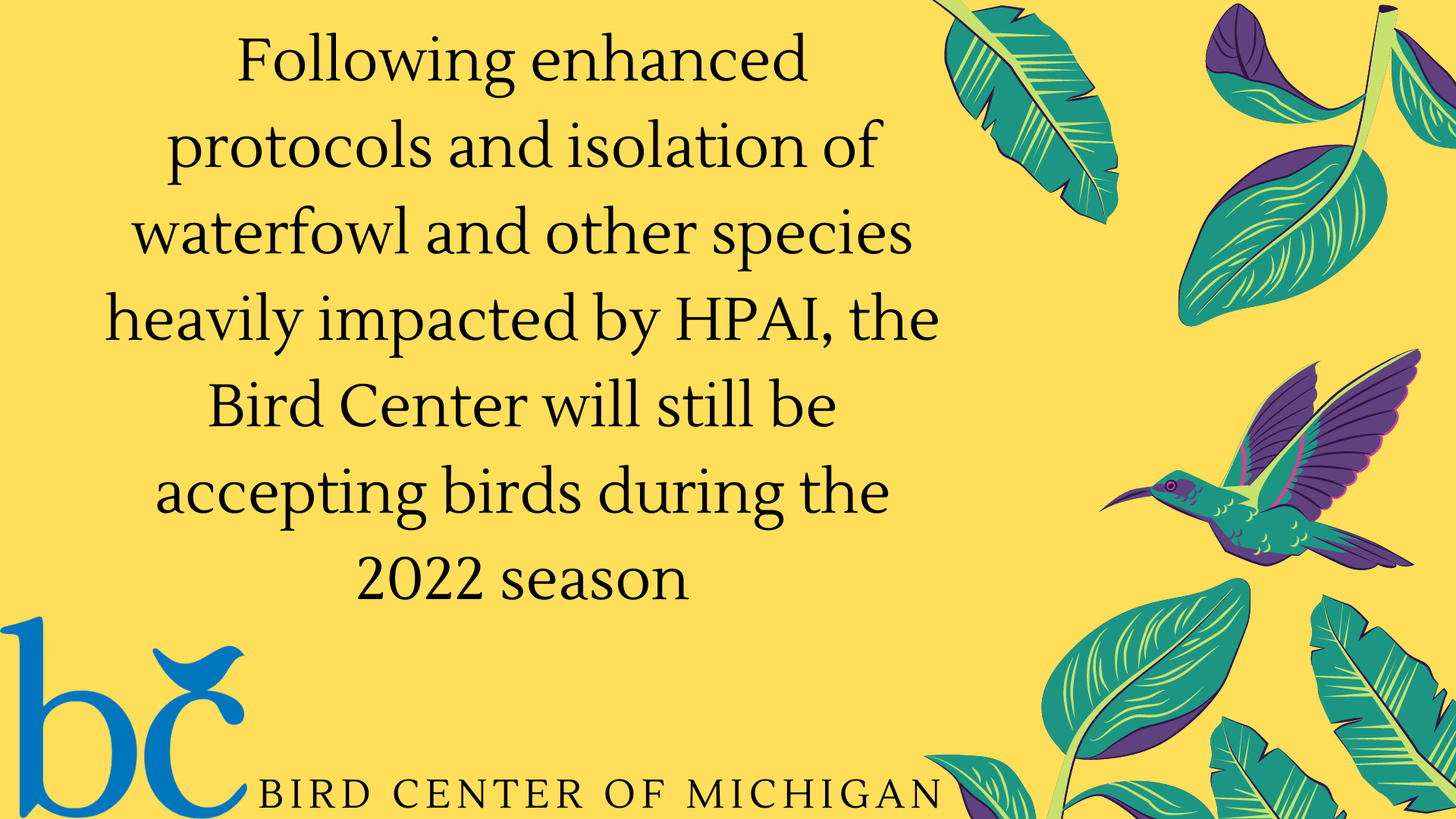What is Highly Pathogenic Avian Influenza?
HPAI is a highly contagious virus that is commonly found among birds which can cause serious illness and death. Wild waterfowl and other species shed the virus into the environment through their oral and nasal secretions and feces. This strain of HPAI is not known to have an effect on people. Highly Pathogenic Avian Influenza (HPAI) has been found in wild bird populations in four counties in southern Michigan.
What birds are affected by HPAI?
All birds can be impacted by HPAI. Waterfowl and poultry are most heavily affected by HPAI. Scavenger species such as gulls, crows, and raptors are also more likely to be impacted.
How is the Bird Center of Michigan addressing these concerns?
The Bird Center primarily cares for injured and orphaned songbirds and will continue to do so. The Bird Center will continue to take in ducklings (primarily referred to our off-site subpermitees), injured ducks on a case-by-case basis, gulls, and crows. The Bird Center does not accept geese, herons, egrets, or raptors.
Our songbirds will be 100% isolated from species that are more susceptible to HPAI. All waterfowl, gulls, and crows will be housed in a separate building on the Bird Center property and will have their own dedicated supplies and staff to work with them. In addition, enhanced protocols are in place, including but not limited to foot baths and advanced cleaning procedures. The Bird Center’s educational ambassadors, One-Eye and Blue, are housed separately from all wild birds.
The Bird Center of Michigan is continuing to monitor the spread of HPAI and is closely following best procedures and practices to prevent spread amongst wildlife rehab patients.
We anticipate an extremely busy season due to the limited number of rehab centers accepting birds at this time. The Bird Center thanks you for your continued support and will continue to update you as we learn more.

